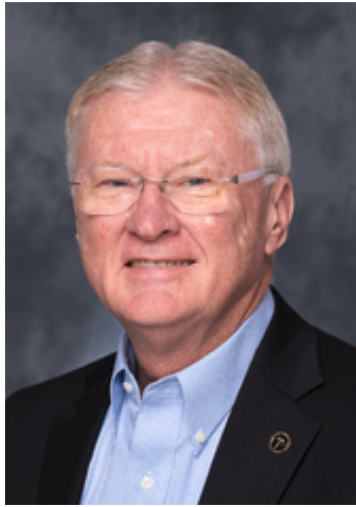Who are the 'nones'? And what do they have in common with agnostics and atheists? It was somewhere around my 15th year when the jazz-rock group Blood, Sweat, and Tears performed a song that rose all the way to No. 2 on the hit charts of the day. The song was titled “And When I Die” and was written by a 17-year-old young woman named Laura Nyro. The song had first been sung by Peter, Paul and Mary and would later be recorded by Allyson Krause. But the brassy, jazzy sound of BS&T has seemed to endure over the years. Maybe it is the sound of the music, or maybe it is the lyrics that seem to echo through the minds of cultural America that have caused the lasting sense of Ms. Nyro’s music. Certainly, her words are still as current amongst many people as they were in 1968. Lyrics like “Now troubles are many; they’re deep as a well” seem just as appropriate now as then.
Who Are the 'Nones?'
But what about the now famous line belted out by lead singer David Clayton Thomas, “I swear there ain’t no heaven and pray there ain’t no hell.” If you listen to those who closely follow religious trends in America, these words could be the theme song of a growing number of folks simply referred to as the “nones.” Though this term was coined as far back as the 1960s, this newly reformatted and rapidly growing “religious” group is very closely related to a number of categories of doubters that have been around for a long time. In fact, lines can get blurred when we speak of antithetical groups to classical religion, particularly the Christian faith. If you look closely enough, you can readily see that this grouping, now known as “nones,” is comprised to a great extent of subsets of people who have been around for hundreds if not thousands of years. Atheists, agnostics, and even the religiously unaffiliated are now being combined by various onlookers and prognosticators who recognize this classification as the fastest-growing and largest single-faith grouping in America.
To be sure, there are subtle yet significant differences amongst these three clusters of belief systems. Though some within this framework would argue that they are not a part of any belief system, their actions give them away. Looking more closely at each individual category, Wikipedia defines atheism as “an absence of belief in the existent of any kind of deity.” Nearly the same, but not quite, an agnostic is a person who tends to believe that anything that smacks of ultimate reality (i.e., God) is unknown and unknowable. An individual identifying as being a part of this group might also refrain from a commitment to any religious viewpoint out of nothing more than a lack of knowledge. Finally, the concept of “None” standing alone simply indicates that the individual is religiously unaffiliated or just non-religious — it is broader than atheism and agnosticism but can surely encompass them.
In a recently released Pew Research report, which delves into the fascinating world of these sub-groups, their survey data actually revealed some very interesting insights into the realm of the “nones”:
- Twenty-eight percent of U. S adults are religiously unaffiliated, describing themselves as atheist, agnostic, or nothing in particular when asked about their religion.
- This grouping grew from just 16% in 2007 to 30% in 2022. Interestingly, this figure dropped to 28% in 2023.
- Seven percent of “nones” identify as atheists, 20% say they are agnostic, and 63% choose “nothing in particular.”
- Most “nones” believe in God or another higher power. But very few go to religious services regularly.
- Most say religion does some harm, but many also think it does some good. They are not uniformly anti-religious.
- Most “nones” reject the idea that science can explain everything. But they express more positive views of science than religiously affiliated Americans do.
Likewise, the Barna Group has also done a great deal of analysis on the “nones.” However, they have determined that this new category of “nones” probably is nothing more than what we at Southern Evangelical Seminary have known through the years as “skeptics.” Barna’s research is a little more specific as to the beliefs of these unaffiliated folks. There is amongst most skeptics the following ingrained beliefs:
- There is a complete rejection of the Bible as God’s inerrant and infallible Word.
- There is a lack of trust in the local church or place of worship.
(3) There is a strong cultural reinforcement of a secular worldview.
How Has the Church Failed the 'Nones'?
All three of these basic beliefs that run through the heart of the “nones” are a pointed indictment of the church in America. But here is the real rub: Barna goes on to point out that 2/3 of these “skeptics” or “nones” have attended some form of church labeled as Christian in the past, with most having done so for an extended period of time before “checking out.”
In any event, the religious profile in the world, particularly in America, is rapidly changing. Not only has the church in America failed to address the shifting secular sociological patterns, but it has utterly failed to project a clear difference between who we are as Christ followers and the rest of the world. Many are becoming disenfranchised from the church because we simply offer no viable alternative and because we have soaked up so much of the secular culture that the American church appears little different than outside culture. This phenomenon is clearly shown as well in the Pew research which indicates that unaffiliated skeptics are expected to continue to increase as a share of the population in much of Europe and North America. And get this: by the year 2050, four out of every 10 Christians in the world will live in sub-Saharan Africa.
If we are to succeed as people of God based on the calling of God on our lives, we must face the fact that, first of all, we have failed in our quest to fulfill the Great Commission. Secondly, we need to ensure that we have pastors who are infused with a biblical worldview and who preach the fullness of God’s Word as the only truth. Lastly, we as a people need to be about living our lives in a true commitment to God’s Word and impacting our nation and world for the cause of Christ. We have dabbled for two long in the shallows; it is time for us to plunge into the pool's deep end.
A few years before Blood Sweat and Tears belted out “And When I Die,” a Russian Cosmonaut named Yuri Gagarin became the first man in space. From his self-proclaimed atheistic viewpoint, he proclaimed, “I looked, and I looked, but I did not see God.” Sadly, a mere few months later, he did. His dying really did tell, just like Blood, Sweat, and Tears said it would. On the other hand, John Glenn was the first American to orbit the Earth. As an avowed Christian, his eyesight was a little clearer. Colonel Glen said, “To look at this kind of creation out here and not believe in God is to me an impossibility.” The point is that maybe it is not just the church in America that is to blame. Maybe it is the millions who are caught up in the web of secular culture and who simply “don’t really care” who are ultimately to blame as well. There is something to be said for personal responsibility that cannot be overlooked, for not deciding this most important question in your life is to decide against Christ.
There is a special place in the heart of Southern Evangelical Seminary for skeptics. Since our inception 32 years ago, we have been the friends of those who have questions. In fact, I initially came to SES because I, too, had questions and wanted to wrap my mind around what my heart wanted to believe. What I discovered is what you will discover as well if you truly seek the heart of the Savior and put your trust in Him. Jesus said of Himself, “I am the way, I am the truth, I am the life” (John 14:6). As my mentor, dear friend, and predecessor in title, Dr. Norman Geisler used to say, “Christianity is not a leap into the darkness, but rather a step into the light.” In fact, you may well find that you need greater faith in your “unaffiliated” status than I do in my faith in the One who died for me.
So, to the skeptics in my life and those around the world, please hear me when I say that you should care not only about your eternal destination but also your present condition. May I, in all love, say to you that you are missing out on the most wonderful relationship possible in this world, between Christ and the true believer. There is a heaven where there is fullness of joy for evermore. There is a hell where there is a fullness of total separation from the God who loves you so much that He sent His only Son to die for your sins on the cross. Hell can be avoided, and heaven can be attained only by surrendering all that you are to Him. In the end, that is the only truth that matters. Our prayer for all of America in this season of discontent is that our nation will once again turn our hearts toward the one true God.
Photo Credit: ©iStock/Getty Images Plus/Khosrork




